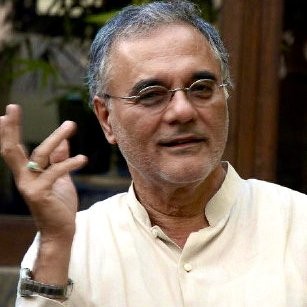

 Daraja Press
Daraja Press
From Citizen to Refugee: Uganda Asians come to Britain


Key Metrics
- Mahmood Mamdani
- Daraja Press
- Paperback
- 9781990263514
- 9 X 6 X 0.23 inches
- 0.35 pounds
- Social Science > Refugees
- English
 Secure Transaction
Secure TransactionBook Description
In his introduction to this third edition, Mahmood Mamdani reflects on the lessons since the expulsion of Asians from Uganda. How come, he asks, over 90% of residents of the country, brown or black, would not want to return to the days and years before the 1972 expulsion? The expulsion cannot just be understood as an event that occurred in 1972. He concludes, tere is no one Asian legacy. There are several, and they are contradictory. Not all are legacies we would like to wipe out from our collective memories. Some we would like to build on; others we would like to reform. Uganda Asians are a poor fit as victims. In a land known for sporadic massacres, there were no massacres of Asians. When massacres happened, they were of 'Äòindigenous' people. Mamdani begins to explore the theme of political identity 'Äì the colonial politicisation of racial identity and its reproduction after independence 'Äì which has been the concern of much of his subsequent work, notably the groundbreaking Citizen and Subject. This gripping and highly readable story of the Asians' last days in Uganda interweaves the stories of Mamdani's friends and family with an examination of Uganda's colonial history and the subsequent evolution of post-independence politics. The British colonial policy of divide and rule ensured that race coincided with class, effectively politicising the category of race. This vivid autobiographical account is as pertinent now as when the book was first published in 1973 in its telling of a story that will be familiar to refugees and those seeking asylum in Britain today.
Author Bio
Mahmood Mamdani is the Herbert Lehman Professor of Government. He received his PhD from Harvard University in 1974 and specializes in the study of African history and politics. His works explore the intersection between politics and culture, a comparative study of colonialism since 1452, the history of civil war and genocide in Africa, the Cold War and the War on Terror, and the history and theory of human rights. Prior to joining the Columbia faculty, Mamdani was a professor at the University of Dar-es-Salaam in Tanzania (1973–1979), Makerere University in Uganda (1980–1993), and the University of Cape Town (1996–1999).
He has received numerous awards and recognitions, including being listed as one of the "Top 20 Public Intellectuals" by Foreign Policy (US) and Prospect (UK) magazine in 2008. From 1998 to 2002, he served as President of CODESRIA (Council for the Development of Social Research in Africa). His essays have appeared in the New Left Review and the London Review of books, among other journals.
He teaches courses on: major debates in the study of Africa; the modern state and the colonial subject; the Cold War and the Third World; the theory, history, and practice of human rights; and civil wars and the state in Africa.
Mamdani’s books include Saviors and Survivors: Darfur, Politics, and the War on Terror (2009); Good Muslim, Bad Muslim: America, the Cold War and the Roots of Terror (2004); When Victims Become Killers: Colonialism, Nativism and Genocide in Rwanda (2001); Citizen and Subject: Contemporary Africa and the Legacy of Late Colonialism (1996), which was awarded the Herskovitz Prize of the African Studies Association; Politics and Class Formation in Uganda (1976); From Citizen to Refugee(1973); and The Myth of Population Control: Family, Class and Caste in an Indian Village (1972).
Columbia University Department of Anthropology
Videos








Community reviews
Write a ReviewNo Community reviews